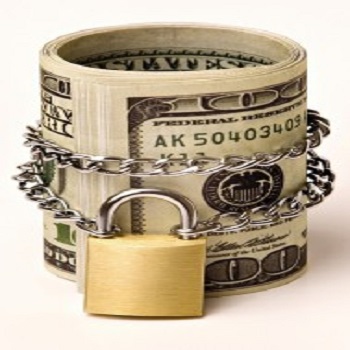
Optimistic statisticians like to broadcast this notion that divorce rates plateaued over the past few years. While this may be true, the trend is not due to any romantic upswing. Financial woes during the Great Recession drove many couples to the brink of divorce, but they couldn’t afford to follow through with the process. As a result, there are many cases where bankruptcy must be handled in divorce. We will discuss how the divorce process is affected by a bankruptcy before, during, and after divorce.
If you have questions about your actual bankruptcy case, you will have to discuss these with your bankruptcy attorney. The divorce case which is under completely different courts and jurisdiction is handled solely by your divorce attorney. We address how you and your spouse will continue after the divorce is finalized as well as piecing together each spouse’s assets and liabilities.
Filed for Bankruptcy Before Filing for Divorce
For those who have filed for bankruptcy (Chapter 13) before filing for divorce in Pennsylvania, there is now the issue of determining how the payment plan will be maintained. The order of the bankruptcy court was determined based upon many factors that will dramatically change once the divorce is finalized. Apart from any support or alimony paid, the shared income used to establish a plan will be altered by divorce.
We help clients construct an agreement as to how payments will be made to the trustee and this agreement must be approved by the bankruptcy court. The agreement is part of a Marital Settlement Agreement and can include many other components of dividing assets and liabilities. Much like you would spell out terms of selling the marital home, payment to the trustee is also addressed.
Filed for Bankruptcy During Divorce
The federal bankruptcy court has superiority over the county court that is hearing your divorce case. What this means for your divorce is that the bankruptcy court supersedes determinations on any division of assets; you cannot divide anything before assets are released by bankruptcy court. This can put the process on hold, as a divorce cannot be finalized until this is resolved. You must also obtain approval from the trustee to file for divorce as it will affect the outcome of your case.
If you can’t pay your creditors, can you stop paying support? No. Any spousal support or alimony being paid to a spouse during the pendency of divorce will not be discharged in bankruptcy, so payments should not be skipped in the hopes of the obligation going away.
Another aspect to consider before filing for bankruptcy during divorce is joint versus personal bankruptcy. If you file for personal bankruptcy and there is joint debt, the banks will pursue your spouse for repayment. The result? Now your spouse is in bankruptcy as well and your divorce will be delayed further. Filing together can often be advantageous in this respect; however, your bankruptcy attorney will help you make the final decision.
Believe it or not, there are some advantages to filing for bankruptcy during divorce. For those in a complicated financial situation, bankruptcy clears up a lot of the confusion during equitable distribution. While you may lose assets, the bankruptcy can alleviate the burdensome debt that would’ve followed you out of the marriage. All that would be left to address would be within a QDRO (Qualified Domestic Relations Order) to distribute any 401K, pension, IRA plans.
Sticking to the Plan after Divorce
The trustee reigns when it comes to paying towards the bankruptcy. An impartial party, the trustee determines whether or not your agreement to pay is valid, then collects the payments on behalf of both parties towards the case. If a spouse does not make payments towards the plan, the trustee and bankruptcy court handles it; we can work with your ex’s divorce attorney to communicate, but family court would not be involved.
After the divorce, you and your ex may be able to file for Chapter 7 bankruptcy, but all of this depends upon your unique situation. If you are considering divorce in Pennsylvania, contact the Bucks County divorce lawyers at the Law Offices of Michael Kuldiner, P.C. to schedule an appointment. With experience in both areas of law, our attorneys can walk you through the process. Call (215) 693-6191 or submit an inquiry form.







